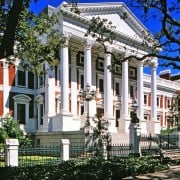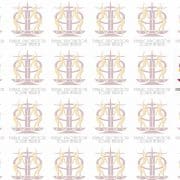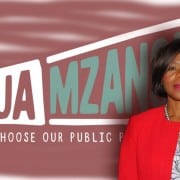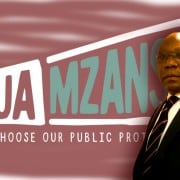|
Getting your Trinity Audio player ready...
|
Our first three-part Bua Mzansi series looks at the careers of South Africa’s three public protectors to date. Part one starts with Selby Baqwa, who helped establish the Chapter 9 institution in 1995. Parts two and three will focus on Lawrence Mushwana and Thuli Madonsela respectively.
Selby Baqwa
The Public Protector has become an increasingly important public watchdog organisation in South Africa, particularly following the judgment by the Constitutional Court on 31 March 2016 on the powers of the Public Protector.
In October 2016, Thuli Madonsela completes her term as public protector and public concern is mounting about her replacement and the process of appointment. While it is generally agreed that Madonsela has been the most successful public protector in South Africa’s history, she often acknowledges her predecessors for their contribution to building a strong and credible institution that reinforces constitutional democracy.
In 1995, Judge Selby Baqwa was appointed by former president Nelson Mandela as the first South African public protector. Baqwa has been praised for his contribution to establishing the Office of the Public Protector (OPP) and raising awareness of the institution, its mandate and services. However, he sometimes displayed a bias towards individuals in the ruling party that called into question the independence and credibility of the institution.
Laying the foundation
There was an immediate public response to the establishment of the OPP in October 1995, with an influx of complaints received. By April 1996, the Public Protector was receiving an average of 200 complaints a week; it had a staff complement of just eight. At the beginning, Baqwa focused on making the OPP accessible to all people and communities. He established provincial and regional offices, as well as outreach visiting points.
Gary Pienaar, a chief investigator in the OPP national office from 1997 to 2002 and in the Western Cape provincial office from 2000 to 2008, notes that Baqwa significantly expanded the investigative skills capacity of staff and initiated an outreach programme that sent investigators into various communities to raise awareness about the OPP and its functions. Baqwa “was articulate, open and urbane, inspiring confidence among staff, complainants and the general public. He established a professional and collegial atmosphere in the OPP, which encouraged investigators to act with integrity, to learn and grow, and to show initiative, including proposing and conducting own-initiative investigations,” says Pienaar.
By the time Baqwa stepped down in 2002, the OPP had a staff complement of more than 200 people at offices in all nine provinces.
He has also been credited for his contribution to Chapter M of the Public Service Regulations, which serves as an administrative guide to ethical and efficient conduct in the public service, as well as with establishing positive relationships with other Chapter 9 institutions and the International Ombudsman Institute.
In 1999, he initiated an investigation into Albert Mokoena, at the time the director-general of home affairs. Mokoena was accused of running his private basketball team using state resources, as well as filling his team with illegal immigrants through abusing his power to irregularly secure the players fraudulent residence permits. Pienaar notes that Baqwa’s firmness on the matter resulted in the director-general’s prompt resignation from the post. “Although he [Baqwa] had been a member of the ANC before his appointment, any inclination to sympathy for the harbingers of our democratic transition was trumped by his professional ethics and commitment to a clean, efficient and constitutionally compliant government,” says Pienaar.
In 1999, Baqwa also recommended the ANC take action against then Mpumalanga premier, Ndaweni Mahlangu, who had suggested that it was acceptable for politicians to lie. “The [premier’s] statement is unbecoming of a member of an executive council. I find it to be inconsistent with the Office of a Premier in that it compromises the credibility or integrity of his Office and of [the government],” Baqwa said. The provincial legislature complied with Baqwa’s recommendation to take remedial action against Mahlangu, who was publicly reprimanded.
Members of the ANC moved to censure Baqwa in 2000, however, when he urged Parliament to take steps against the then minister of minerals and energy affairs, Penuell Maduna; Baqwa said the Constitution “would not be worth the paper it is written on” if politicians were allowed to act with impunity. In his report, he found that in 1997, Maduna had accused Henri Kluever, the auditor-general at the time, of helping to cover up a R170-million theft of oil from the Strategic Fuel Fund, costing the taxpayers millions of rand in subsequent investigations despite knowing that the allegation was false. Baqwa found Maduna had contravened sections of the Constitution which guaranteed the independence and integrity of bodies such as the Auditor-General, and which enjoined different organs of state to act in good faith towards each other.
Toeing the line
Baqwa, however, began to show bias towards the ruling party. Richard Calland, a law professor at the University of Cape Town, calls Baqwa a “canny operator” who was cautious during the establishment of the OPP to “not upset too many political apple carts too early in the life of a new institution, prudence was the watchword of his [Baqwa’s] investigations”.
The first major corruption controversy in the Mandela administration emerged in 1996, when tendering processes were flouted in the production of the musical Sarafina II. The then minister of health, Nkosazana Dlamini-Zuma, was accused of misusing public funds and misleading Parliament, and the Public Protector was called on to investigate. Baqwa came under scrutiny for placing the blame on a mid-level official in order to shield Dlamini-Zuma from any serious consequences.
During his term, the OPP was also tainted when Parliament established a joint investigating team (JIT) consisting of members of the OPP, the Office of the Auditor-General and the National Prosecuting Authority to investigate the arms deal. Pienaar notes: “The reputation of the Office was dented by the JIT’s misplaced trust in the president’s credibility when some findings were adjusted slightly. The JIT’s willingness to give the benefit of the doubt to the integrity of the leadership of the democratic struggle turned out to be an error of judgement. The result was that identified evidence of misconduct could not be completely pursued and verified, and full responsibility could not be apportioned.”
Although Baqwa built a firm foundation on which the OPP could be built, his subjectivity towards certain individuals in the ruling party injured the credibility of the institution in its early days. Following his years as public protector, Baqwa was appointed a judge of the North and South Gauteng High Court in 2012.
• The Democratic Governance and Rights Unit contributed to this article.








